Chelsea Manning: Donald Trump’s America ‘is another prison’

Chelsea Manning at OUT100 Awards (Bryan Bedder/Getty for OUT Magazine)
Transgender former Army private Chelsea Manning has said America in 2018 “is like another prison”.
The whistleblower recently announced she is to run in the Democratic primary to be Senator for Maryland.
Speaking to the Washington Post, Manning admitted that she was surprised by the sort of country she emerged from jail to find.
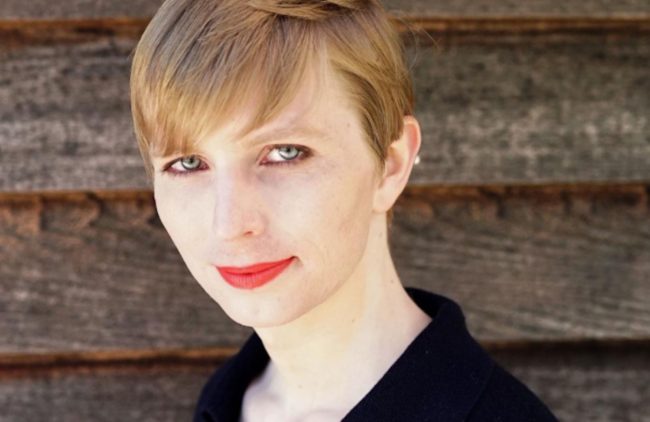
Chelsea Manning
“This is not the home I expected to come home to,” Manning, 30, told the publication.
“This is another prison… I need to figure out how we’re going to survive it.”
Her way of dealing with Trump’s America is to run for office herself – challenging incumbent Senator Ben Cardin, who has served two terms in the Senate and is a major voice in foreign policy.
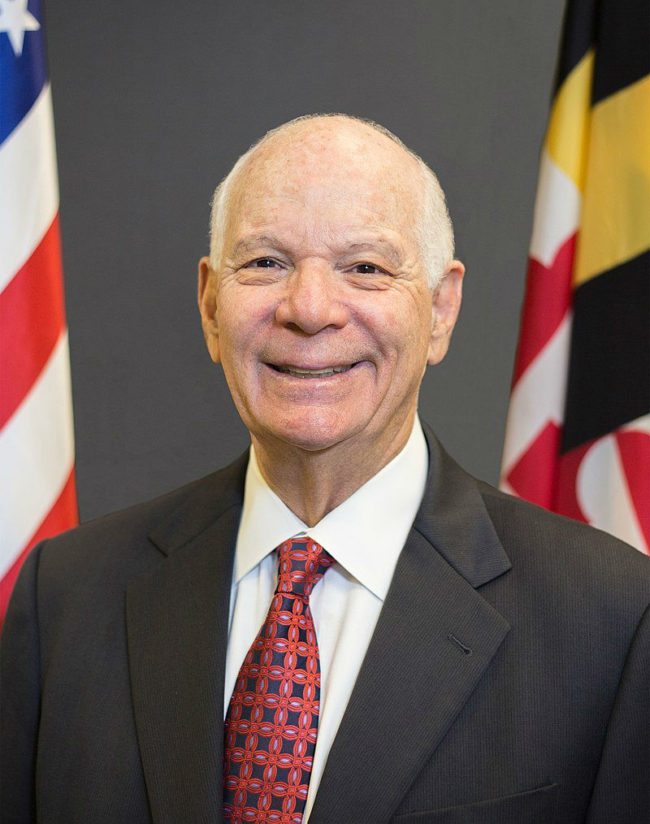
Senator Cardin
Senator Cardin was first elected in 2007 and is a consistent advocate for LGBT rights.
“The establishment needs to be challenged, and it needs to be challenged in their footholds and in the places where they feel safe,” Manning said, explaining her reasons for running in the race.
“This isn’t about criminal justice reform,” she said, “it’s about criminal justice restructuring. We need to start closing prisons. We need to start releasing prisoners.”
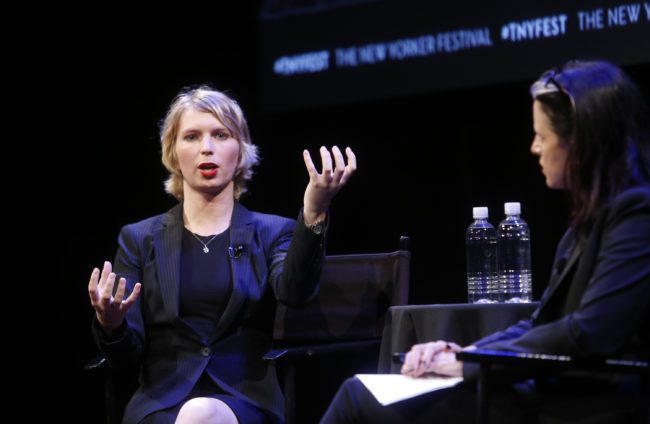
Chelsea Manning (Photo by Thos Robinson/Getty Images for The New Yorker)
Manning, who was homeless before joining the US Army, acknowledges that “I’m trans and I bring some experience to the table,” but says her gender identity isn’t a key reason behind her election bid.
Manning was convicted of passing sensitive government documents to Wikileaks and spent seven years behind bars, before being pardoned by President Obama.
Some continue to be sceptical of Manning, including among the LGBT community, highlighting the risks posed by her involvement in WikiLeaks.
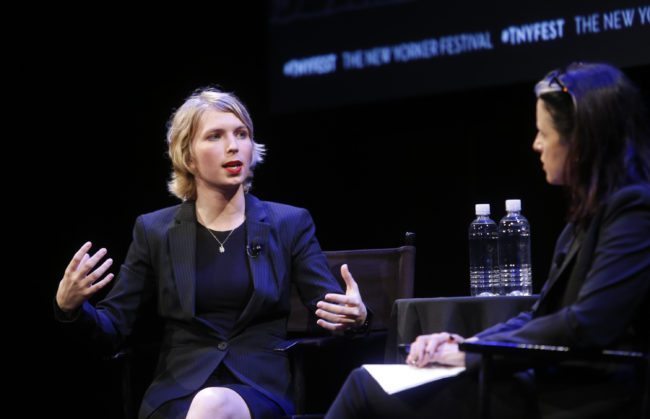
Chelsea Manning (Photo by Thos Robinson/Getty Images for The New Yorker)
Asked if she is a traitor, Manning hits back: “In a society where people can call Hillary Clinton, James B. Comey — anybody that you disagree with politically becomes a traitor, then we can’t have a debate”.
“Given the circumstances that I was in and everything that I knew at the time, I did what I felt was the right decision to make. I can’t go back and change that,” she added.
Former military specialist Manning leaked more than 700,000 classified documents via WikiLeaks.
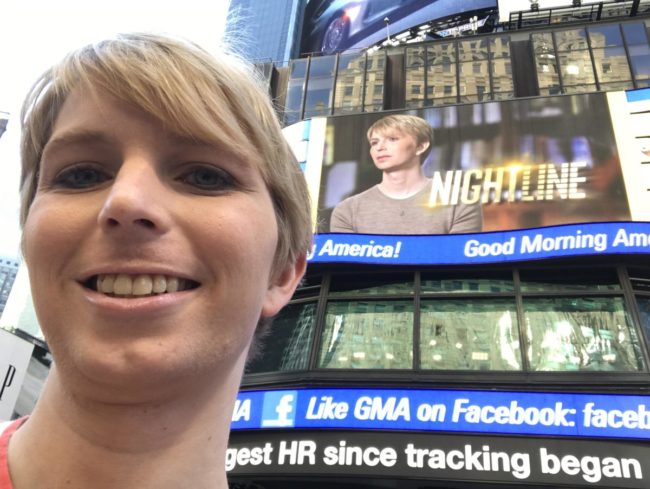
Chelsea Manning
At just 22 she shared the US diplomatic correspondence, which included evidence of civilian deaths in Iraq and Afghanistan, profiles of detainees at Guantanamo prison camp, and low-level battlefield reports.
“I’ve accepted responsibility for my own decisions and my own actions,” she previously said.
Manning claimed in her defence that she wanted to go through traditional media routes in leaking the information, but it was not possible.

“I think it’s important to remember that when somebody sees government wrongdoing – whether it’s illegal or immoral or unethical – there isn’t the means available to do something about it.
“Everyone keeps saying, ‘You should have gone through the proper channels!
“But the proper channels don’t work.”
Manning says she technically tried to get the information out through the mainstream press – but opted to go through WikiLeaks after getting nervous about her short window of opportunity to release the information.

In early 2010 when she attempted to reach out to The Washington Post and The New York Times.
“I did this all on leave. I had only twelve days,” she said of that period, adding, “I ran out of time.”
The 29-year-old told ABC after being released: “I have a responsibility to the public … we all have a responsibility.
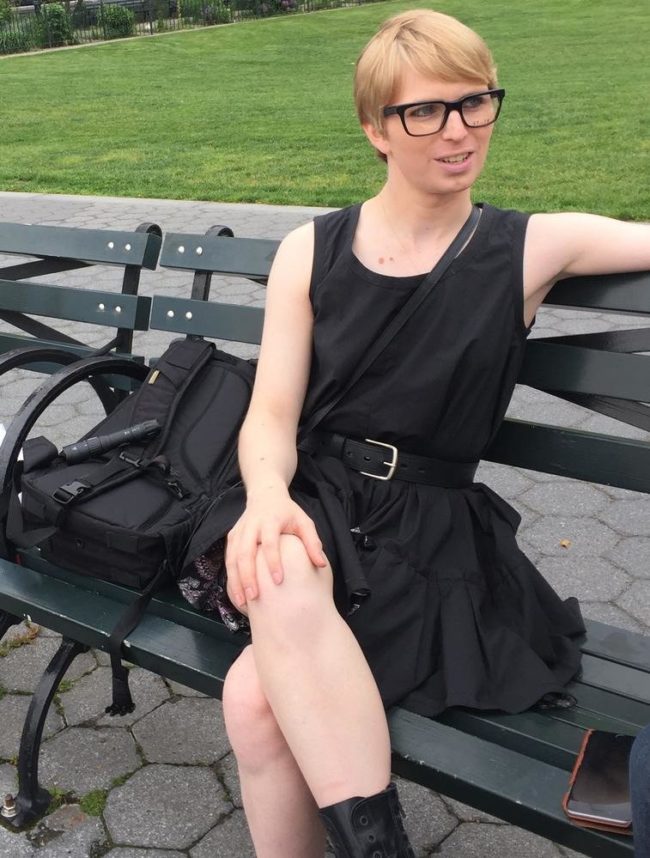
“Anything I’ve done, it’s me. There’s no one else. No one told me to do this.
“Nobody directed me to do this. This is me. It’s on me.”
Obama’s decision to commute Manning’s sentence – one of the last of his presidency – was credited by many commentators to years of campaigning from advocacy groups.

